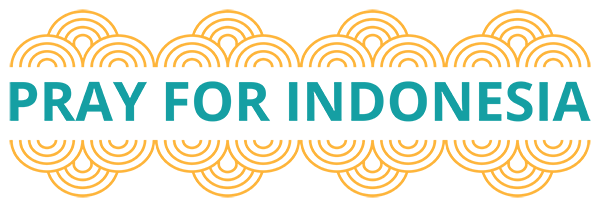The call to prayer blares loudly from a nearby mosque and awakes me at 4 am. I finally drift back to sleep as the noises from the loud speaker continue to ring in my ears. An hour later I wake up again from loud shouts in the street. A food seller is riding by on a bike letting everyone know what they are selling for breakfast. I try to go to sleep again.
At 8 am I get ready for the day and take off on my motor bike to language school. I am still getting used to the flow of traffic that is more like water than sticking to your lane. People weave in and out of each other. Indonesians walk across the street that you have to move around. The canals on the side of the road are contaminated with trash and sometimes the smells are unbearable as I drive by.
Learning Language and Being Stared At
At school, I try my hardest to speak, listen and write bahasa Indonesia. By the end of the 3 hour class my brain feels fried. I go across the street to order some fried rice. Rice has become a main staple in my diet now, even though I rarely ate it in America.
After lunch, I go to the grocery store and continue to practice my language with the cashiers and people there. Everyone speaks Indonesian and I only am beginning to understand the basic conversations.
I try to go about my errands as discreetly as possible, but everyone is staring at me. There are very few Americans in the city and I stick out like a sore thumb. Some people come up to me and ask for my picture. They giggle when I try to practice my Indonesian with them. I am aware of my thick American accent and feel frustrated that I can’t sound more like them.
Late Friends and A Slower Pace
After I arrive back at home, I plop on my couch and feel like I’m ready for bed. It’s only 3 pm. I try to rest a bit then get ready to meet one of my new friends that I met in the park the other day. I arrive at the café and text her that I am there. She responds that she is still getting ready. An hour later she finally arrives and I am feeling a little agitated that she didn’t plan to get ready sooner and meet me on time. (I would soon realize this is normal in Indonesian culture).
We wait longer than I am used to for our food and then our check. The slower pace of life is so opposite from fast paced America. People just aren’t as busy and in a rush in Indonesia. It was something I respected but also drove me crazy!
Adjusting to the Culture
These are just a few examples of “culture shock” that I experienced within the first few months of living in Indonesia. Culture shock is the feeling of disorientation experienced by someone who is suddenly subjected to an unfamiliar culture, way of life, or set of attitudes. It can hit you at different times and the feeling of “shock” can last for months.
Sometimes the culture shock was obvious and other times it crept in and it felt like I had really hard days but I couldn’t pin point the reasons. Slowly and over the years, I began to adjust and adapt to the new way of life in Indonesia. I grew a lot in patience and came to love the beautiful culture in Indonesia. When I returned to America I experienced “reverse culture shock” – to my own culture! Even though I still feel out of place at times, I am thankful I have adopted some of the culture I learned in Indonesia. Trying to have a slower pace and enjoy the moment is one value I am thankful I learned in Indonesia!
